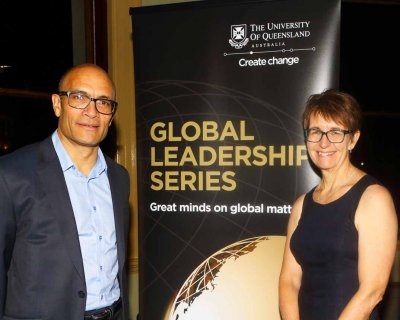Families
Our families research examines the role of this central unit in producing and perpetuating inequality, and protecting against it, within the life pathways of individuals and in society.
Families are an integral component of social life and are fundamental to the distribution of social and economic resources within and across generations. The family you are born into has a strong influence on life chances and opportunities. With almost 600,000 children living below the poverty line, understanding the links between family characteristics and child outcomes is critical to designing efficient and effective policies to reduce disadvantage and enhance child wellbeing.
Welfare dependency or inherited disadvantage?
 Are hard work and individual effort enough to help a person break free from a life of disadvantage, or are there systemic inequalities that prevent some people from becoming the masters of their own destiny?
Are hard work and individual effort enough to help a person break free from a life of disadvantage, or are there systemic inequalities that prevent some people from becoming the masters of their own destiny?
ISSR's Director, Professor Mark Western, and the Life Course Centre's Director, Professor Janeen Baxter, discussed these questions with a public audience at The University of Queensland’s Global Leadership Series public lecture on Wednesday 16 November 2016, where they provided insights into tried and tested interventions that have been making inroads to even out the playing field.

Research in this area examines changes in pathways through the life course including the emergence of new patterns of family formation and dissolution, new forms of relationships and partnering, changing patterns of fertility and childrearing and the consequences of these trends for inequality and the wellbeing of men, women and children.
Read more on LCC Visit the Life Course Centre
Respectful relationships program evaluation
ISSR has been commissioned by the Department of Families, Housing, Community Services and Indigenous Affairs (FaHCSIA) to undertake a longitudinal outcome and process evaluation of multiple funding initiatives aimed at preventing sexual assault through education. This project involves an outcome... Read more
Paid parental leave evaluation
The evaluation examines the operation of the paid parental leave (PPL) scheme, and its impact on a range of outcomes, including mothers’ and fathers’ leave taking, the health and wellbeing of mothers and babies, mothers labour force participation, and gender equity and work-life balance.... Read more
Dad and partner pay evaluation
The project is an evaluation of the Australian Government’s Dad and Partner Pay (DaPP) scheme. DaPP aims to create new opportunities for fathers and partners to bond with their newborn child, and allow them to take a larger share of caring responsibilities for their newborn children.... Read more
Millennium mums survey: Enhancing mothers’ engagement with the workforce in the preschool years
The Millennium Mums project is a national study of working mothers who had babies in October and November 2011. The project examines their experiences with leave from their employer and decisions about paid employment, as well as family life, health and wellbeing around the birth of their baby.... Read more
For better or for worse? Understanding the Revolution in Married Life in Australia
This project provides important information that enables greater understanding of changing family patterns and provides critical data for policy-makers concerned with the social welfare of individuals and the changing role of the family in Australia today. It examines the consequences of changing patterns such as life satisfaction.... Read more
Parental engagement: Developing effective strategies for schools to engage the disengaged
This project will examine the prevalence of positive parental and community engagement with State schools in Queensland and develop models and strategies to improve school engagement. While previous research has shown that parental and community engagement with schools and student learning... Read more
Social Networks & Health & Wellbeing
Social science and social policy increasingly recognise that people’s family, friendship and other networks matter for their health and well-being. But it remains unclear why networks are important and what kinds of positive and negative effects they might have. Research has also been... Read more
Parental engagement and children’s education outcomes
Both parental engagement and parental educational beliefs and expectations play critical roles in a child’s educational outcomes. A lack of education is associated with a range of antisocial behaviours, including delinquent activity, teenage pregnancy, unemployment and future dependency on social services.... Read more
